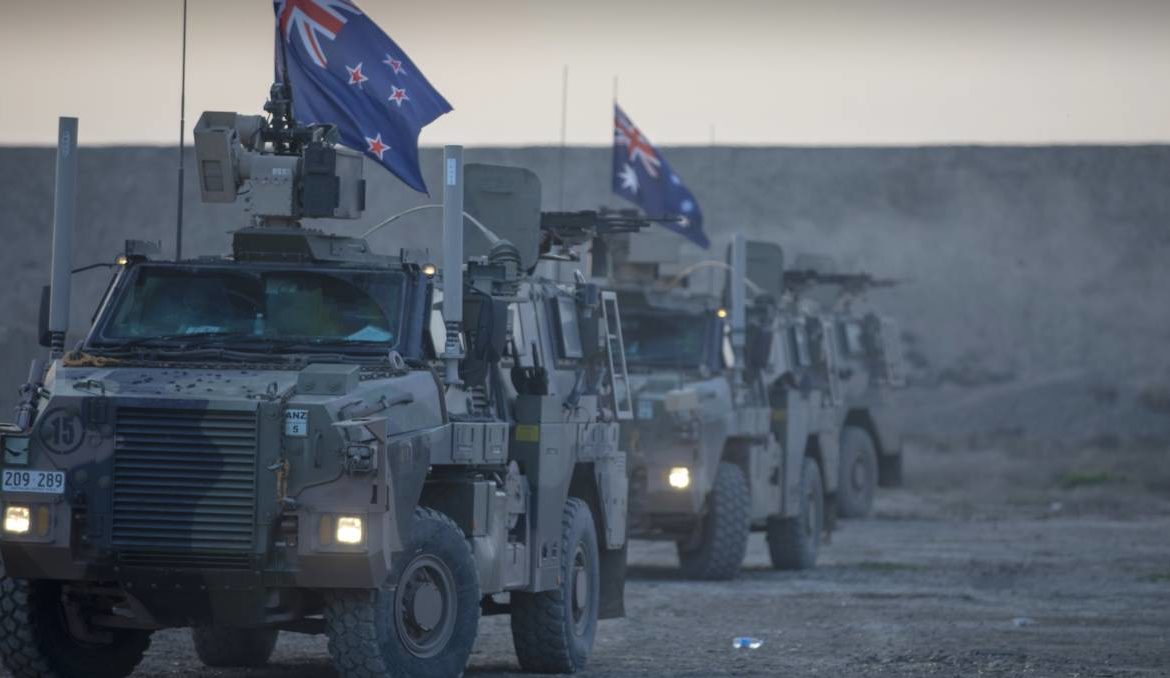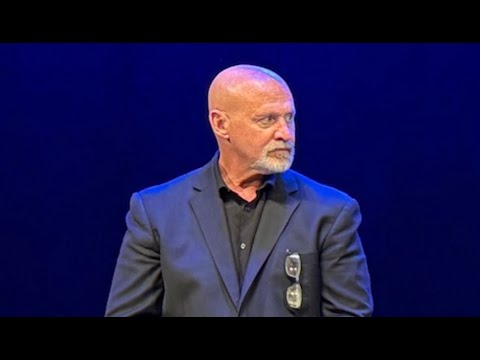news, latest-news, australia defence association
A long-awaited report into alleged war crimes committed by Australian soldiers in Afghanistan has been released, sending shockwaves through the country. Defence Force chief General Angus Campbell publicly released a redacted version of the Brereton Inquiry’s findings on Thursday morning, which spanned a four-year investigation covering war crime allegations and rumours occurring between 2006 and 2013 in Afghanistan. It found credible evidence that 25 special forces personnel were involved in the unlawful killing of 39 individuals, mostly prisoners, farmers and civilians. It also found evidence of a toxic culture within the sub-unit that encouraged new recruits to kill prisoners in order to achieve their first kill – a practice called “blooding”. “It is alleged that some patrols took the law into their own hands, rules were broken, stories conducted, lies told and prisoners killed. And once that rule was broken, so to, for some, was any further restraint,” General Campbell said in a media conference. “Accountability rests with those who allegedly broke the law and with the chain of command responsible for the systemic failures involved which enabled alleged breaches to occur and go undetected.” General Campbell added he had agreed to the report’s 143 recommendations and a comprehensive implementation plan was being drafted. Professor John Blaxland, an expert in international security and former Army officer, said it was a stain on the nation’s history and suggested a larger failure of Australia’s involvement in the conflict. “This is a stain on the reputation and legacy of the Australian Defence Force and on the nation,” Professor Blaxland said. “It speaks to a failure that is bigger and deeper than the soldiers involved in the atrocities. It speaks to an inadequate sense of perspective on what we were committing our forces to do and the circumstances they would face.” He added that a “silver lining” to the distressing news was that the military’s leadership was a sending a good message to the world. “There’s a silver lining to this, which is that we are modelling to the world how you deal with atrocities. This can only happen in an open liberal democracy,” Professor Blaxland said. “It’s going to shake, and shape, the Defence Force and special forces for generations to come.” READ MORE: Minister for Defence Personnel and Veterans Affairs Darren Chester told Sky News the behaviour outlined in the Brereton report was “deviant” and an “aberration”. He noted around 1500 special forces soldiers served in Afghanistan and only 25 had been singled out in this inquiry. He said he did not want the reputations of the vast majority of soldiers to be “stained” by the actions of a few. However, Mr Chester hit back at an element of the report, which blamed the high number of rotations some soldiers did in Afghanistan for the “cultural drift”. Mr Chester said while it was a high-tempo environment, the bulk of soldiers seemed “capable of coping with the demand placed on them”. The inquiry recommended there be a review of “dwell times” between deployments. Professor Blaxland said these problems began at a strategic level. Following the United States into a conflict it had no clear strategy or roadmap for, likely made many returning soldiers immune to the violence. “Where there’s no viable strategy, and you’re going back rotation after rotation, after rotation, year after year after year, there is a certain inoculation to the violence that takes place,” Professor Blaxland said. “I think that some people maintain their moral compass. In fact, the overwhelming majority maintain their moral compass. But a significant body did not. And it’s toxic.” The Australian War Memorial has also considered how it will deal with this ugly chapter in the nation’s official story in light of the report’s release. It said it was reviewing the findings and promised it would remain a place of “trust and truth-telling”, echoing director Matt Anderson’s comments at a parliamentary hearing on Friday. “The memorial has the responsibility to consider the causes, conduct and consequences of Australia’s experience of war,” a war memorial spokesperson said. “The … report is one of the aspects of contemporary service that will be told at the Memorial, and it will be told in the context of Australia’s longest war.” Dr Brendan Nelson, former defence minister and war memorial head, declined to comment.
/images/transform/v1/crop/frm/wVfaN4dWTUMKJDuE2XYSVu/a71a0477-74d9-4e98-978b-b7a5c9e1d73c.jpg/r14_107_5996_3487_w1200_h678_fmax.jpg
A long-awaited report into alleged war crimes committed by Australian soldiers in Afghanistan has been released, sending shockwaves through the country.
Defence Force chief General Angus Campbell publicly released a redacted version of the Brereton Inquiry’s findings on Thursday morning, which spanned a four-year investigation covering war crime allegations and rumours occurring between 2006 and 2013 in Afghanistan.
It found credible evidence that 25 special forces personnel were involved in the unlawful killing of 39 individuals, mostly prisoners, farmers and civilians.
It also found evidence of a toxic culture within the sub-unit that encouraged new recruits to kill prisoners in order to achieve their first kill – a practice called “blooding”.
“It is alleged that some patrols took the law into their own hands, rules were broken, stories conducted, lies told and prisoners killed. And once that rule was broken, so to, for some, was any further restraint,” General Campbell said in a media conference.
“Accountability rests with those who allegedly broke the law and with the chain of command responsible for the systemic failures involved which enabled alleged breaches to occur and go undetected.”
General Campbell added he had agreed to the report’s 143 recommendations and a comprehensive implementation plan was being drafted.
Professor John Blaxland, an expert in international security and former Army officer, said it was a stain on the nation’s history and suggested a larger failure of Australia’s involvement in the conflict.
“This is a stain on the reputation and legacy of the Australian Defence Force and on the nation,” Professor Blaxland said.
“It speaks to a failure that is bigger and deeper than the soldiers involved in the atrocities. It speaks to an inadequate sense of perspective on what we were committing our forces to do and the circumstances they would face.”
He added that a “silver lining” to the distressing news was that the military’s leadership was a sending a good message to the world.
“There’s a silver lining to this, which is that we are modelling to the world how you deal with atrocities. This can only happen in an open liberal democracy,” Professor Blaxland said.
“It’s going to shake, and shape, the Defence Force and special forces for generations to come.”
Minister for Defence Personnel and Veterans Affairs Darren Chester told Sky News the behaviour outlined in the Brereton report was “deviant” and an “aberration”.
He noted around 1500 special forces soldiers served in Afghanistan and only 25 had been singled out in this inquiry.
He said he did not want the reputations of the vast majority of soldiers to be “stained” by the actions of a few.
However, Mr Chester hit back at an element of the report, which blamed the high number of rotations some soldiers did in Afghanistan for the “cultural drift”.
Mr Chester said while it was a high-tempo environment, the bulk of soldiers seemed “capable of coping with the demand placed on them”.
The inquiry recommended there be a review of “dwell times” between deployments.
Professor Blaxland said these problems began at a strategic level.
Following the United States into a conflict it had no clear strategy or roadmap for, likely made many returning soldiers immune to the violence.
“Where there’s no viable strategy, and you’re going back rotation after rotation, after rotation, year after year after year, there is a certain inoculation to the violence that takes place,” Professor Blaxland said.
“I think that some people maintain their moral compass. In fact, the overwhelming majority maintain their moral compass. But a significant body did not. And it’s toxic.”
The Australian War Memorial has also considered how it will deal with this ugly chapter in the nation’s official story in light of the report’s release.
It said it was reviewing the findings and promised it would remain a place of “trust and truth-telling”, echoing director Matt Anderson’s comments at a parliamentary hearing on Friday.
“The memorial has the responsibility to consider the causes, conduct and consequences of Australia’s experience of war,” a war memorial spokesperson said.
“The … report is one of the aspects of contemporary service that will be told at the Memorial, and it will be told in the context of Australia’s longest war.”
Dr Brendan Nelson, former defence minister and war memorial head, declined to comment.







